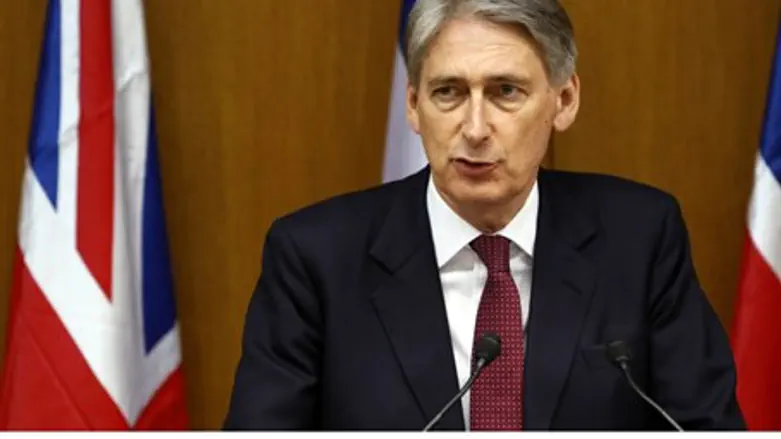
British Foreign Secretary Philip Hammond was in Israel Thursday for talks on the Iranian nuclear deal, AFP reported, a day after charging the Jewish state would have opposed any deal with its arch-foe.
Hammond was due to meet Prime Minister Benjamin Netanyahu to explain the deal directly, in light of Netanyahu's defiant opposition to Tuesday's agreement between Iran and six world powers.
But Hammond told the British parliament ahead of his visit that there was no agreement that the powers could have struck with Iran that would have been acceptable to Israel.
"The question you have to ask yourself is what kind of a deal would have been welcomed in Tel Aviv," Hammond said on Wednesday.
"The answer of course is that Israel doesn't want any deal with Iran. Israel wants a permanent state of standoff and I don't believe that's in the interests of the region. I don't believe it's in our interest."
Netanyahu has charged repeatedly that the agreement will not block Iran's path to a nuclear weapon and has signaled Israel could use military force to prevent it.
He says Israel will not be bound by the agreement because "Iran continues to seek our destruction."
Netanyahu also warned that Iran will be flush with cash after the lifting of UN and Western sanctions that will allow it to boost its support to terrorism around the region.
"We shall diligently reserve our right to defend ourselves against all our enemies," Netanyahu told Israeli lawmakers on Wednesday. "We have great and mighty strength on our side."
However, unilateral military force by Israel appears highly unlikely for now and behind-the-scenes talks could produce concessions to compensate it for the threat it says the deal poses.
After Hammond, US Defense Secretary Ashton Carter is due in Israel next week. Israeli opposition leader Yitzhak Herzog is also due to visit the United States soon, in part to push for security guarantees.
Herzog said he planned "to demand that Israel receive a full-fledged security and military umbrella that will keep its qualitative and military
edge in order to be able to challenge the risks entailed in this agreement."
The United States currently grants Israel some $3 billion in military aid a year, in addition to support for other projects, including its Iron Dome missile defense system.
